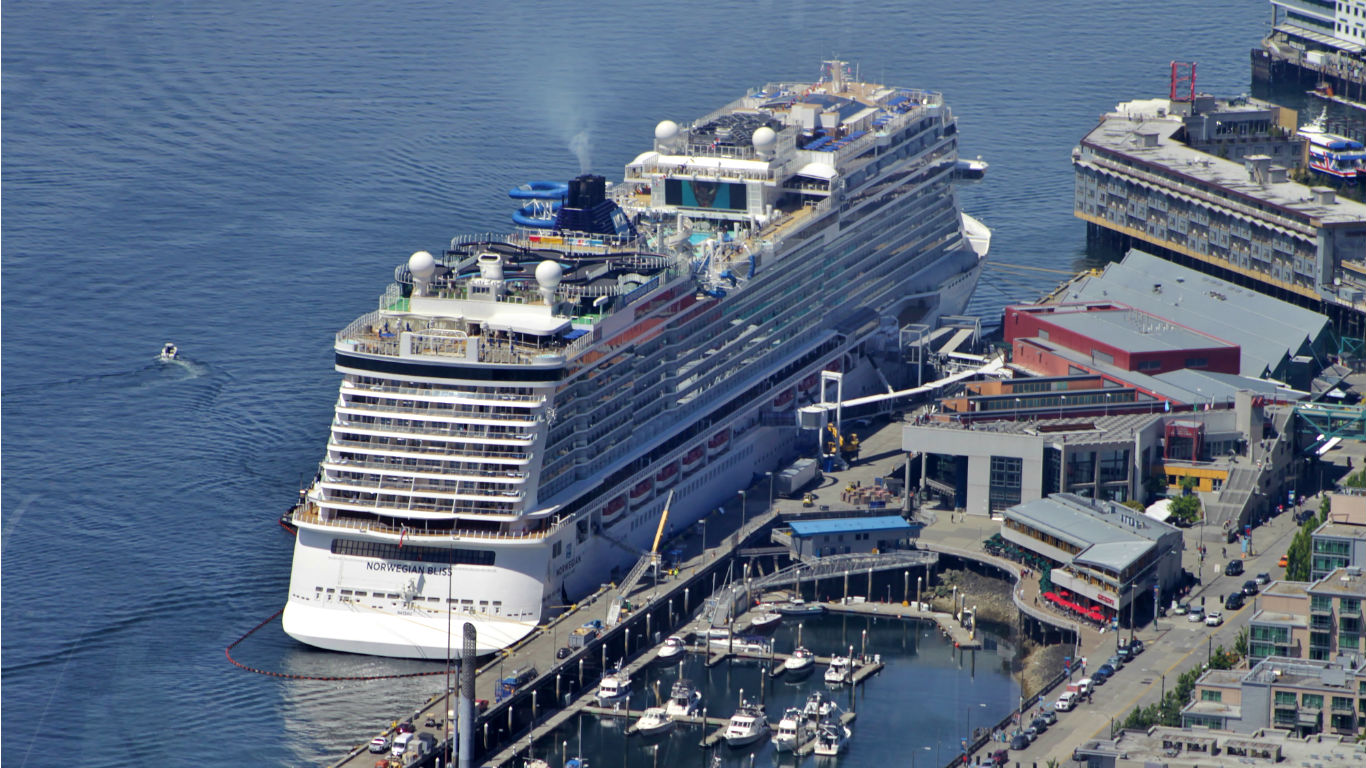

Anytime the fears of a recession or economic slowdown come into play, leisure and travel stocks tend to get hit hard. The higher-ticket travel oufits, such as cruise lines, tend to take it extra hard. It turns out that with all the economic fears, and some summer storms affecting destination and ports, the cruise lines have seen their shares fall substantially from highs seen earlier in the year.
Wedbush Securities has come out in defense of the weakness in the cruise line industry, noting that the sell-offs seen have perhaps been too extreme. James Hardiman has pointed out that the hits from 2019 and the near-term earnings risks may be smaller than the positive underlying trends that can act as wind at their backs. A research report also points toward having faith in the 2020 earnings story.
Hardiman has reiterated the Wedbush ratings as Outperform on Royal Caribbean Cruises Ltd. (NYSE: RCL) and Norwegian Cruise Line Holdings Ltd. (NYSE: NCLH). He issued a $140 target price on Royal Caribbean (versus a $108.32 prior close) and a $65 target on Norwegian Cruise Line (versus a $49.33 close). The report estimates that Hurricane Dorian represented a $0.10 to $0.15 knock on Royal Caribbean’s third-quarter earnings per share and a $0.04 per share hit against Norwegian’s third quarter.
While Wedbush’s estimates are slightly less than consensus, the report suggested that most analysts on Wall Street do not appear to have adjusted estimates properly. This is said to be where investors should be focused on third-quarter performance and the fourth-quarter guidance outside of events such as storms, fuel prices and currencies. Hardiman does not expect Norwegian or Royal Caribbean to disappoint on these issues.
Carnival Corp. (NYSE: CCL) was maintained as Neutral with a $43 target price (versus a $42.39 close).
The report further said:
Of much greater importance will be the 2020 earnings power for these companies, and we are comfortably ahead of the Street in all three cases. While 2019 has been a topsy-turvy year for the cruise companies, in many cases the unexpected earnings headwinds over the course of the year will become tailwinds in 2020. … Given these tailwinds, we believe that the Street is significantly underestimating 2020 earnings power, and that the “core” earnings growth assumed by the Street is minimal (in the case of Royal Caribbean) and negative in the cases of both Carnival and Norwegian.
Wedbush’s report also suggests that 2020 should see similar capacity growth to 2019. After approximately 6% growth modeled for 2019, the firm’s 2020 estimate is calling for 6.5% to 7.0% growth but noted that this figure is likely to come down by more (similar to 2019) as incremental ship sales and retirements are announced. Wedbush’s report said:
While 2019 represented a significant jump versus 2018, this has not resulted in a meaningful stumbling block for Royal Caribbean or Norwegian as so many bears anticipated. 2020-2022 are likely to be similar to 2019 when all is said and done, and while this is a modest uptick versus historical levels, pricing performance would suggest that the demand side of the equation has also accelerated in recent years.
The Outperform-rated cruise liner stocks traded higher after the Wedbush report, while the Neutral-rated one was still slumping.
Royal Caribbean shares were up 0.7% at $109.10 on Thursday, down from a 52-week high of $131.04 and compared to a consensus target price of $141.28. Royal Caribbean has almost a $23 billion market cap.
Norwegian Cruise Line was trading up by just five cents at $49.39 a share. Its 52-week high is $59.71, its consensus target price was $64.35 and its market cap was last seen at $10.6 billion.
Shares of Carnival were down about two cents to $42.37. The consensus target price is $48.47. The 52-week high is $65.62, and the market cap is $30 billion.
Take This Retirement Quiz To Get Matched With A Financial Advisor (Sponsored)
Take the quiz below to get matched with a financial advisor today.
Each advisor has been vetted by SmartAsset and is held to a fiduciary standard to act in your best interests.
Here’s how it works:
1. Answer SmartAsset advisor match quiz
2. Review your pre-screened matches at your leisure. Check out the
advisors’ profiles.
3. Speak with advisors at no cost to you. Have an introductory call on the phone or introduction in person and choose whom to work with in the future
Take the retirement quiz right here.
Thank you for reading! Have some feedback for us?
Contact the 24/7 Wall St. editorial team.


